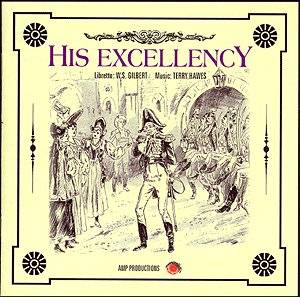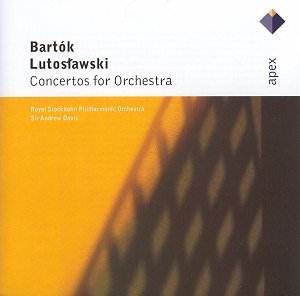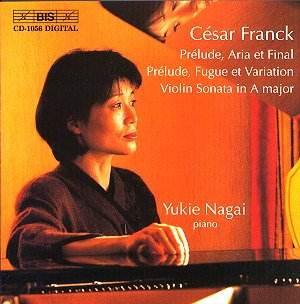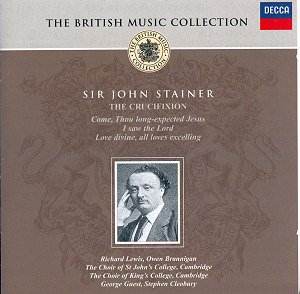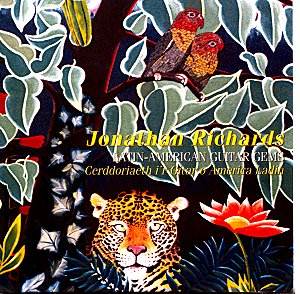 Composer: Jonathan Richards
Composer: Jonathan Richards
Works: Latin-American Guitar Gems
Performers: Jonathan Richards (guitar)
Recording: Sain SCD2298
Label: Divine Art
Jonathan Richards embarks on a vibrant exploration of Latin-American guitar music, deftly unearthing gems that traverse the rich cultural landscapes of Brazil, Paraguay, Venezuela, Peru, Chile, and Argentina, along with selections from Mexico and Cuba. This album, “Latin-American Guitar Gems,” serves as a testament to the enduring allure and complexity of Latin-American music, as it juxtaposes well-loved classics with lesser-known works, all while emphasizing the diversity of styles and influences that define this repertoire. Richards, whose previous foray into British guitar music showcased his technical prowess, here adopts a more eclectic approach, inviting listeners to discover the rhythmic intricacies and emotional depth characterizing South American compositions.
Richards’ performance is marked by a spontaneous energy that breathes life into each piece. The inclusion of Heitor Villa-Lobos’ “Prelude No.1 in E minor” stands out not only for its harmonic richness but also for its ability to convey a wide range of emotions, from introspective melancholy to exuberant vitality. Richards navigates its intricate passages with an admirable fluidity, establishing a compelling dialogue between the music’s lyrical lines and its vibrant Brazilian roots. While Villa-Lobos is present, it is notable that the majority of this collection features works by composers such as João Pernambuco and Mario Gangi, whose interpretations of Brazilian forms like the Chôro allow Richards to showcase his interpretative versatility. Gangi’s “Chôro” is particularly noteworthy; Richards’ phrasing is both precise and expressive, capturing the dance-like quality intrinsic to the genre.
Richards’ own “South American Sketch No.1” adds an original voice to the compilation, reflecting his keen understanding of regional styles while simultaneously contributing to the narrative of the album. His approach to the guitar is refreshingly unpretentious, resonating with a natural charm that avoids the clinical precision of more polished recordings. However, the choice of low-tension strings may have dulled some of the sonic dynamism; while they produce a sweet tone, the lack of punch diminishes the impact in more vigorous passages, notably in the lively “Carnavalito” by John Zaradin, which could benefit from a more vigorous attack.
The engineering quality of this recording deserves special mention. The acoustic space, while slightly dry, affords a clear representation of Richards’ technique, allowing the subtleties of his touch to emerge. Each note is articulated with clarity, although one might yearn for a bit more resonance to fully capture the vitality of the music. Comparatively, other recordings in this genre often offer a more enveloping soundscape, which can enhance the listener’s immersion. However, the honesty of this presentation aligns well with Richards’ interpretative aesthetic, presenting a direct connection to the music without excessive embellishment.
The eclectic program, punctuated by traditional pieces arranged by Terence Croucher and Nicholas Hooper, crafts a mosaic of sound that celebrates the cultural tapestry of Latin America. The inclusion of Barrios’ “Julia Florida” and “Villancico de Navidad” not only showcases the guitarist’s technical skill but also highlights the emotive power of Barrios’ compositions, which blend folk elements with classical sensibilities. Here, Richards’ interpretation shines, as he balances technical precision with heartfelt expression, embodying the spirit of the music.
Richards’ “Latin-American Guitar Gems” is a commendable effort that captures the essence of a rich musical heritage while inviting exploration into lesser-known territories. The combination of familiar and obscure works, along with Richards’ engaging performance style, offers an accessible yet enriching listening experience. The authenticity of his interpretations, despite some limitations in sound engineering and string selection, resonates as a genuine homage to the vibrant traditions of Latin-American guitar music. This collection stands as a delightful entry point for those seeking to appreciate the diverse voices that contribute to the guitar repertoire, making it a worthwhile addition to any classical guitar enthusiast’s library.
